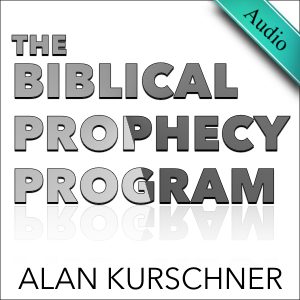Podcast: Play in new window | Download | Embed
 In this first part of two parts, I explained the context to the Restrainer question.
In this first part of two parts, I explained the context to the Restrainer question.
Who is the “Restrainer”? This question stems from Paul’s text in 2 Thessalonians 2:6–7. “And so you know what holds him back, so that he will be revealed in his own time. For the hidden power of lawlessness is already at work. However, the one who holds him back will do so until he is taken out of the way.”
I am from the persuasion that the identity of the Restrainer in 2 Thessalonians 2:6–7 is the Archangel Michael. There are several compelling lines of evidence to conclude this, and the value of this conclusion is its consistency to the overall prewrath position, even though it is not an essential tenet to the prewrath view. From a negative point of view it undermines the pretribulational interpretation that the Restrainer is the Holy Spirit.
The Michael interpretation is not a new, since there has been about a dozen theologians and scholars over the last hundred years who have taken this position, even Robert Van Kampen a pioneer of the pewrath position held to this view.
But it was not until the year 2000 that a young Thessalonian scholar by the name of Colin R. Nicholl who came along that would, for many scholars, put the nail in the coffin on the Restrainer debate.
In the April 2000 volume of The Journal of Theological Studies, Colin R. Nicholl published the seminal article, “Michael, The Restrainer Removed (2 Thess. 2:6-7),” arguing strongly that Michael is the Restrainer. After his journal article was published Nicholl published it as an appendix in his important monograph (which was his dissertation) From Hope to Despair in Thessalonica: Situating 1 and 2 Thessalonians, Cambridge University Press, 2004.
I gave some context to Paul’s restrainer text that helps situate this question for next week’s episode.
Paul reminds the Thessalonians that they know about the restraining ministry of Antichrist’s revelation: “And so you know what holds him back.” The Thessalonians are under the false impression that the day of the Lord is occurring. To correct their error, Paul teaches that before the Lord’s revelation happens, the Antichrist’s revelation will occur first. But even before the Antichrist’s revelation occurs, Paul explains that the individual who restrains Antichrist’s revelation must be first taken away.
Traditionally, the enigmatic person who restrains has been properly designated “the Restrainer.” Once the Restrainer is removed, this causes Antichrist’s revelation, eventuating in Antichrist taking his seat in the temple and proclaiming himself as God (2 Thess 2:4). When this happens at the midpoint of the seven-year period it will cause the abomination of desolation and the unabated great tribulation will commence.
I also note that the issue of the identity of the Restrainer is not essential to the prewrath position, namely because it does not sway the fact that Paul teaches two events must occur before Christ’s return: the apostasy and the revelation of the man of lawlessness. So one can be prewrath and disagree that it is Michael, because it simply is not inherent to the prewrath position. Conversely , it is possible for pretribs to hold the Michael view. Similarly, the issues of identifying the religion or ethnicity of the Antichrist, the False Prophet, the Great City of Babylon, or the Two Witnesses are not exclusive to a particular a rapture view. That being said, I believe that identifying the restrainer as Michael is the most consistent interpretation, and that it fits well with the prewrath position.
In part 2 next week, I will distill Colin Nicholl’s argumentation, providing the specific lines of evidence.


